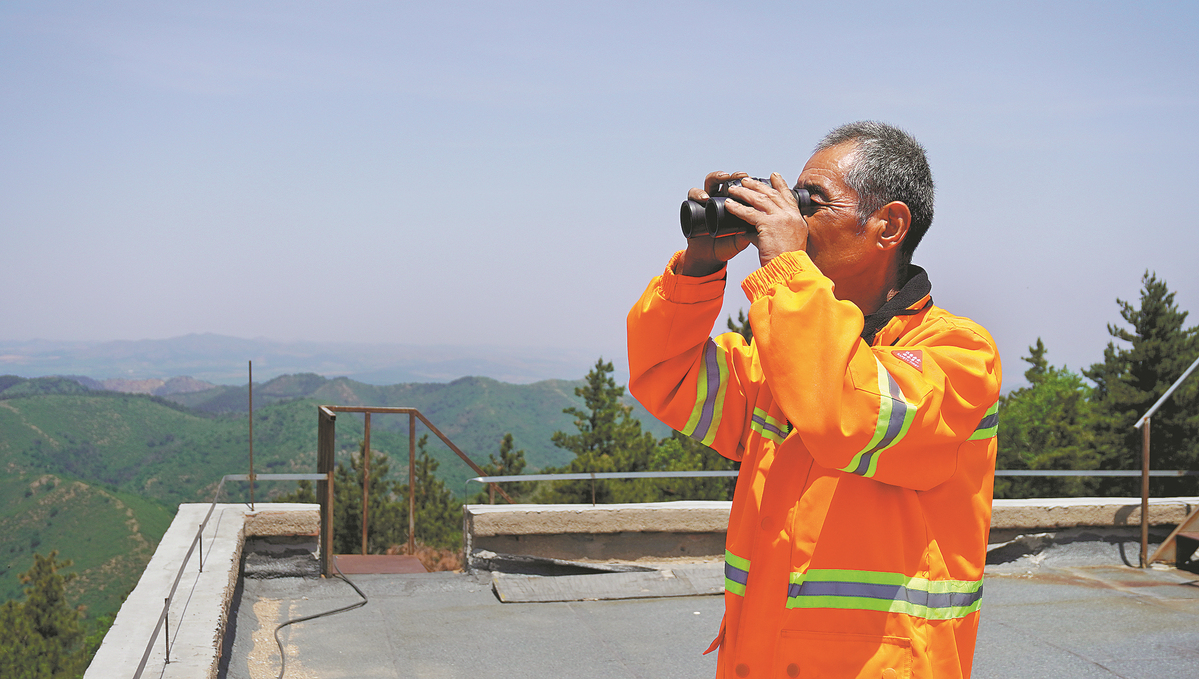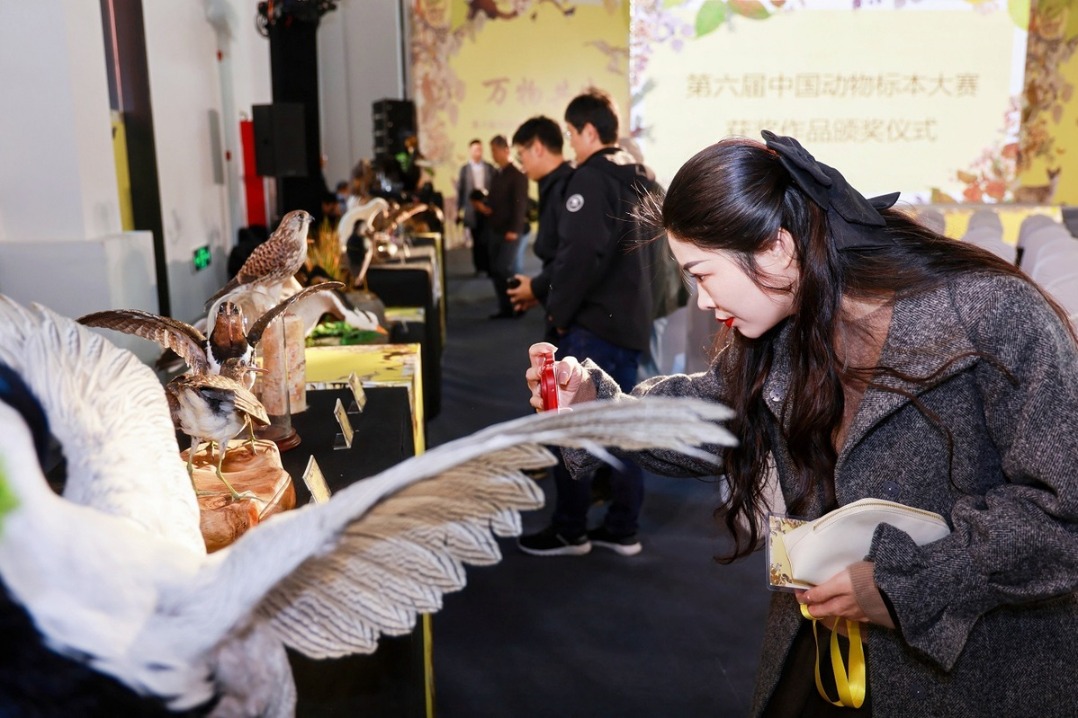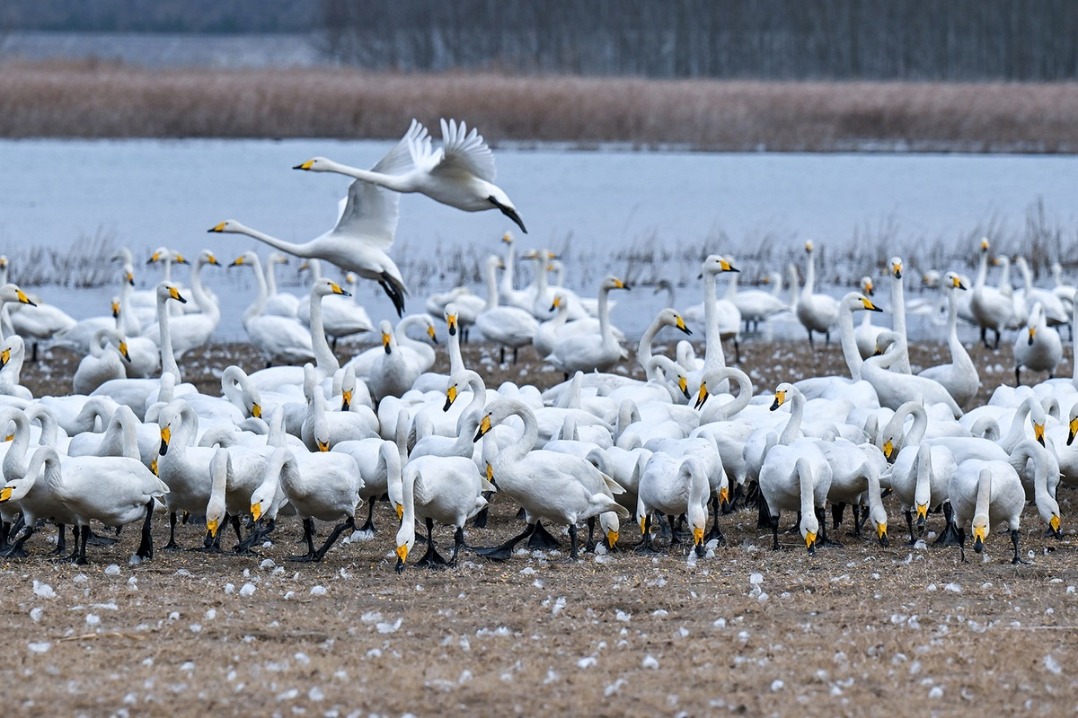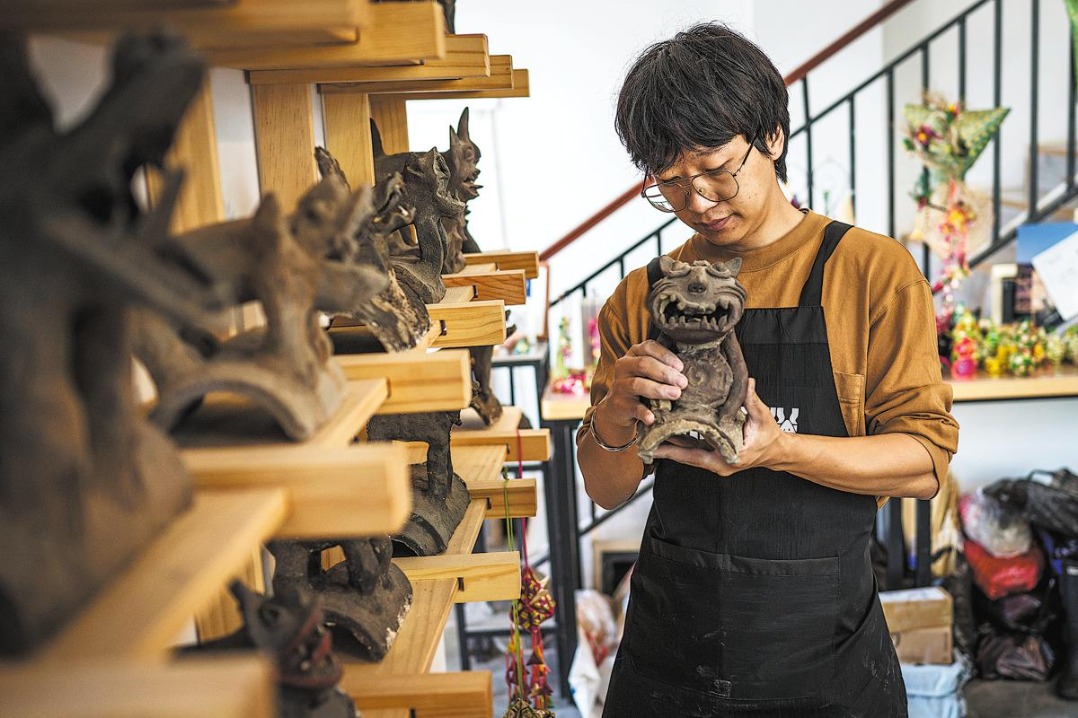Fire watcher stands by his promise


Isolation and a lack of facilities have not daunted a devoted worker at a forest farm. Yuan Hui reports from Hohhot with Hou Liqiang in Beijing.
For a long time, Lin Shuchun's job was only undertaken by temporary workers. That's because no permanent employees of the Daheishan Forest Farm could endure the loneliness in the remote and isolated watchtower where Lin is based.
The management of the forest farm in Chifeng, Inner Mongolia autonomous region, frequently had to look for new temporary workers to watch out for fires, because no one had ever managed to stay in the job for more than a year.
However, Lin has been at his post for 28 years so far. Loneliness has not been his only problem, though: for much of his time at the watchtower, he had no access to electricity or tap water, so it was a luxury for him to even take a shower.
Lin started working for the forest farm in 1982 after graduating from junior high school. Originally, he was an apprentice woodworker, but when a temporary employee in the watchtower quit the job in late 1995 and the leaders of the forest farm were racking their brains looking for a replacement, Lin unexpectedly applied for the post.
Skeptical about Lin's determination to stay in the tedious, but essential, job for an extended period, the managers detailed all the difficulties he would have to face while working at the watchtower. He recalled that they explained that there was no water or electricity in the shabby facility, so he would have to transport daily necessities on his back via ragged mountain roads.
He responded with a resolute answer. "I told them I would never regret my decision," he said with a smile.
Lack of facilities
When Lin took up the post, he and his wife lived and worked in a dilapidated two-room adobe house.
Their bedroom was so small that Lin, who is 1.7 meters tall, couldn't stand at full stretch on the kang, a heated brick bed commonly seen in northern China. Apart from a transceiver for fire control communication and a radio, they had almost no other modern appliances.
Thanks to his more than a decade of experience as a woodworker, Lin made tables, desks, stools and cupboards, and also repaired all the leaky doors and windows in the tatty house.
The lack of water posed the greatest challenge to the couple, and they depended on a mountain spring about 500 meters from the house.
Initially, Lin transported water with shoulder poles. There were impurities in the water, which produced a foul smell. He had to filter the water through gauze and then boil it for drinking.
"Because of the lack of water, I seldom took a shower. I didn't often wash my clothes, either," he recalled.
The poor transportation infrastructure between the watchtower and the outside world meant that the couple had few food choices. Most of the time, potatoes and cabbages were the only vegetables available to them.
Their living conditions only improved in 2000, when the forest farm built a two-story brick-and-concrete watchtower. However, electricity and tap water only became available after the facility was expanded in 2017.
In 2003, it became much easier to obtain daily necessities and water as the forest farm not only built a 4.3-kilometer gravel road for the watchtower, but also bought the couple a donkey.
Without the new road and the donkey, Lin would have had to visit the forest farm's offices more than 10 kilometers away roughly every 10 days to collect necessities and carry them home on his back.
The old mountain road was so rough that he would only have been able to carry about 10 kilograms of daily necessities on each visit.
Every time, he left the watchtower at around 8 am, only arriving back after 3 pm, he said.
It wasn't unusual to see snakes of more than 2 meters in length, many of which were poisonous. "If you were bitten by a poisonous snake, there would be no one around to offer help in the dense forest. The consequences were totally predictable," he said.
Seasonal discomfort
Winter was the most difficult season as heavy snow often cut off the road to the outside world, making it impossible for Lin to get necessary items. For example, after a heavy snowstorm in 2012, he didn't get any daily necessities for two months, and he had to boil snow to get drinking water.
Though he got access to tap water in 2017, the pipes easily froze in winter, so he still had to transport water with the donkey's help for at least five months every year.
After working for 11 years, the donkey he had received in 2003 was too old to work. He quickly got another, but the animal has been working for so long that his hind quarters are crippled and he can't move freely.
The past 28 years have seen Lin's skin become darker, his face has wrinkled and his back has become hunched, making him look much older than his actual age.
However, his persistent endeavors have paid off. To date, he has helped rectify more than 50 fire hazards in the 66,700 hectares of forest under his care. The forest can absorb more than 300,000 metric tons of carbon dioxide a year in addition to the other environmental benefits it brings, according to the local forestry administration.
In addition to all the loneliness and difficulties in his post, Lin suffered a blow in 2005, when his wife divorced him after he refused to quit his job and leave the remote and isolated place with her.
Despite that, the 59-year-old is determined to stay in his post.
Every day, he gets up at 6 am, and looks out of the watchtower with his telescope every 15 minutes until 9 pm. After that, he scans the surrounding area every hour.
He said he will keep his promise and will not quit until he reaches the standard retirement age of 60.
- Shanxi ends province-wide blanket fireworks ban
- Audit: China fixes bulk of fiscal problems tied to 2024 budget
- China reports major gains in circular economy
- Chinese lawmakers review draft revision to banking supervision and regulation law
- Top legislature to study draft laws on environment, ethnic unity, national development planning
- Administrative organs must secure people's interests: senior judge





































